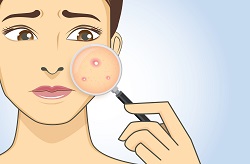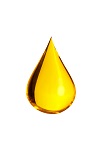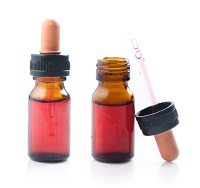Understanding and Treating Acne
Acne can range from mild sporadic breakouts to long-term irritation that can last months or even years. Most often, we associate acne with
teens, but acne can affect adults as well. There are many myths about acne, its causes and its treatments, and this article addresses these while informing you of the proven facts about what causes acne and how you can best address this common skin problem. Whether you're suffering from acne now, know someone who is affected by acne or have ever been curious about what likely caused your acne when you were a teen, this article is for you.
WHAT CAUSES ACNE
Acne is a symptom of four main conditions:
-
Excessive oil production
- Clogged pores
- Dead skin cells
- Bacterial infection
Oil production is a normal part of having healthy skin. Those of us with oily skin think of oil as the enemy, but without active oil production, your skin would lose elasticity and become wrinkled, itchy and irritated.
However, when your skin produces excess oil, it can build up in the hair follicles. This is why acne does not occur on parts of your body where hair cannot grow, such as the palms of your hands. The buildup of oil in combination with low cell turnover can create a hotbed for bacteria and therefore infection.
If bacteria are present and an infection results, you will notice a pimple, which is red around the edges and white in the middle. If a pore is simply plugged by oil or dead skin cells but an infection is not present, you will notice a whitehead. A whitehead is oftentimes referred to as a pimple as well. If the plugged pore is open to the surface, exposing bacteria and oil to the air, a reaction occurs, which causes the plug to darken. This is a blackhead.
WHO GETS ACNE

Anyone with skin and hair follicles can experience acne, but several factors do exacerbate the condition. We already discussed the recipe for acne, but why are some of us more prone to breakouts than others?
Excessive oil production and low cell turnover that contribute to clogged pores and bacterial infections are generally made worse by the following:
-
Hormones
- Medications
- Genetics
- Stress
Hormones are the most common reason behind why we experience breakouts. This is why teenagers tend to suffer from the condition more often. During adolescence, hormones change and are produced in abundance. This imbalance is demonstrated in many ways, including restlessness and mood swings and, very commonly, acne. But hormonal changes aren't reserved for our teen years. Women also experience strong hormonal changes during pregnancy, and many experience a variety of skin conditions while pregnant that can include acne.
Certain types of medications can cause acne, although the incidence of acne from prescribed medicines is not high. If you have recently started using birth control pills or have been prescribed corticosteroids, your acne breakouts may be related to these.
Unfortunately, genetics do play a strong role in acne. If both of your parents had acne growing up, your chances of getting acne are very high.
Although stress does not contribute to long-term acne, the fluctuations in hormones caused by stress can cause mild breakouts. This is why you'll sometimes notice a pimple right before a big event like an interview, your senior pictures or a test.
FOOD
Some studies have been conducted using high glycemic index foods in order to find a correlation between blood sugar spikes and acne. Many of these studies consisted of a small sample size, were based on questionnaires, were never repeated or did not exclude other existing factors. Although such a correlation may exist, it has not been proven scientifically.
MYTHS
It's important for us to dispel any myths about acne. As we already discussed above, acne has been proven to have several specific causes, all of which can be addressed. Acne is NOT caused by:
-
Greasy foods
- Chocolate
- Dirt
GREASY FOODS & CHOCOLATE
Unless you're rubbing the pizza into your pores, there is no correlation between eating greasy foods and the overproduction of oil in your skin. While we can't encourage making greasy foods or excess sugar a part of your everyday diet for other health-related reasons such as obesity and diabetes, your culinary indulgences are not the cause of your acne.


How do we know?
The oil on your skin is produced by a gland connected to your hair shaft, called the sebaceous gland. This gland is not connected to your stomach and will produce oil even if your diet lacks it.
DIRT
We understand that it's easy to assume there’s a connection between having oily skin and breakouts and needing another shower. Excess oils feel uncomfortable, and the immediate solution is to try to dry out your skin as much as possible to keep oils from taking over again. But acne isn't caused by infrequent cleansing, nor does the excessive use of face or body washes reduce the occurrence of breakouts from excess oils and clogged pores.

How do we know?
Soaps dry skin out, providing an immediate solution to your oil problem. But have you ever noticed that it's not long before oil production continues and your skin seems even greasier than before?
That's because drying your skin out completely signals to your body that moisture is desperately needed. Each time you use an aggressive cleansing method to wash away the oil, your sebum production is kicked into overdrive in an effort to restore what your body believes is "balance."
Additionally, scrubbing your skin repeatedly can actually make acne worse by causing irritation. Popping pimples, whether accidentally or on purpose, gives bacteria the opportunity to invade, increasing your chances of further infection.
TREATMENTS
There are many different treatments for acne depending on the severity and necessity for immediate intervention. If an infection is present that needs to be controlled, a doctor will likely prescribe antibiotics. However, antibiotics are not intended for long-term treatment and should be used sparingly as they can cause mutations in bacteria that cause the bacteria to be resistant to antibiotics.
The three most common treatments for breakouts are:
-
Retinoids
- Antiandrogens
- Salicylic acid
- Low-level chemical peels
Retinoids are chemically related to vitamin A and are very effective in unclogging pores, which allows other acne treatments such as face washes, lotions or gels to work more efficiently. Additionally, they regulate skin cell growth, which aids in the prevention of dead cells clogging pores.
Antiandrogens are a class of medication that block the effect of androgen hormones to reduce oil production. There are several kinds of antiandrogen drugs available for various medical conditions, but the one reserved for skin problems is likely one you've heard of: birth control.
Salicylic acid is a common ingredient in over-the-counter as well as professional acne treatments, from face wash to moisturizer. Salicylic acid helps unclog pores by dissolving oil and other impurities in order to treat and prevent acne, pimples or blackheads. It does not affect the production of sebum.
A low-level chemical peel can be a great way to tackle acne from another angle. Mild peels actually causes little to no peeling, and are generally repeated at intervals. Peels penetrate skin to dissolve dead skin cells that cause blocked pores while stimulating collagen formation which repairs skin.
The effects of a peel are similar to that of a Retinoid, but we generally see less skin irritation.
At SkinObsession, we sell a variety of treatments and products for acne-prone skin, from toners and face washes to masks and chemical peels. Our treatments have been carefully formulated and tested to treat and prevent acne while addressing all of the underlying issues of problematic skin.
Whether you have aggressive acne or mild breakouts from time to time, we carry a wide selection of natural and organic skin treatments designed to reduce inflammation, remove impurities, exfoliate and nourish skin to provide you the best results possible at affordable costs every time.
If you have any questions about our products, we're here to help. We know that dealing with acne has likely been a frustrating experience for you. Contact us today with your questions, comments or concerns!